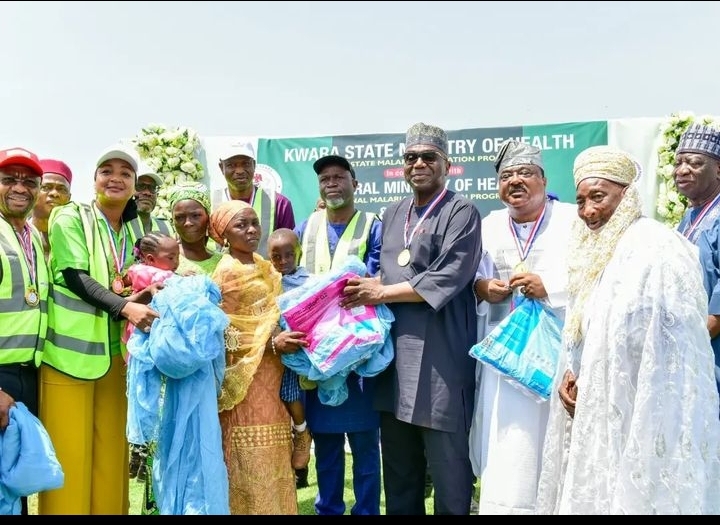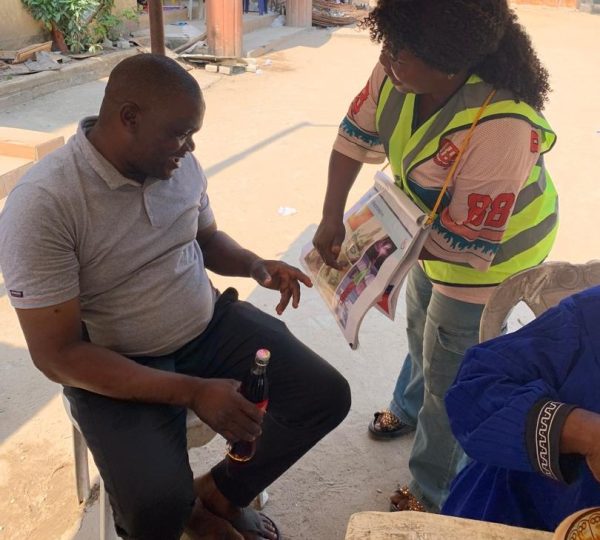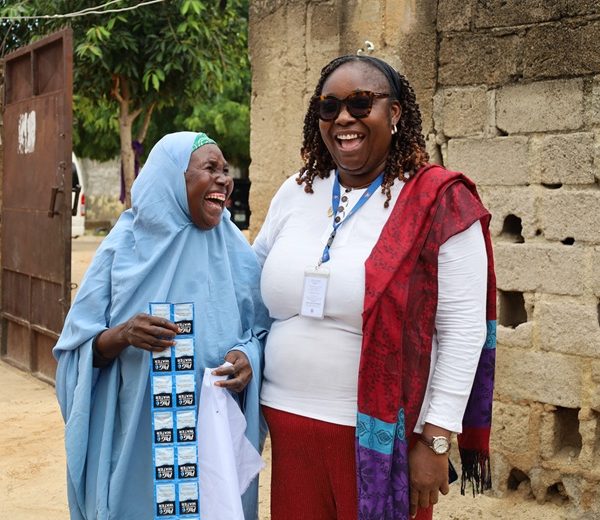INTEGRATED SMC AND ITN CAMPAIGN IN KWARA STATE: A Groundbreaking Initiative by the Society for Family Health Nigeria.
By John Ocholi, Denen Daniel Gbue, Christopher Dangana, Sesugh Deborah Oryiman, Seember Ishuh, Boluwatife Adesina
Malaria’s grip on Nigeria as a public health menace is alarming, with a staggering 68 million cases and 194,000 deaths reported in 2021 (WHO 2022). Unquestionably, Nigeria bears the highest burden of malaria globally, contributing nearly 27% to the global malaria load. Within this context, Kwara State played its part, contributing 1.4% to Nigeria’s staggering 68 million malaria cases in 2021. Despite efforts, the estimated number of malaria cases in Kwara State hovered around 1.0 million between 2018 and 2021, with a slight uptick in the incidence rate from 302 to 312 per 1000 population.
In the quest to combat Nigeria’s malaria scourge, various interventions have been deployed at national, state, local government, and community levels, albeit in a fragmented manner. Notable interventions such as Seasonal Malaria Chemoprevention (SMC), Insecticide-Treated Nets (ITN), Malaria in Pregnancy (MiP), and malaria case management have been implemented individually. However, recognizing the need for a cohesive strategy, the groundbreaking Integrated SMC and ITN Campaign was conceptualized and implemented by the Society for Family Health (SFH) in collaboration with the National Malaria Elimination Program (NMEP) and Catholic Relief Services (CRS), with funding support from the Global Fund Malaria Project.
The Integrated SMC and ITN Campaign, a novel approach, aimed to address the gaps in existing strategies by integrating SMC, involving door-to-door administration of sulfadoxin pyrimethamine with amodiaquine (SPAQ) to eligible children aged 3 to 59 months during the rainy seasons, and the distribution of ITNs to households. This groundbreaking initiative was proposed as an effective strategy offering comprehensive protection, increased coverage, improved sustainability, and cost-effectiveness—a concept hitherto unimplemented anywhere in the world.
SFH, NMEP, and CRS took the reins to implement the 2023 Integrated SMC and ITNs mass campaign in Kwara State. The campaign set a bold objective: to ensure that, for every two persons in Kwara State, there is one bed net for protection, and every eligible child receives a full course of SPAQ. The strategy involved piloting four different approaches across the 16 LGAs in the state, with the aim of identifying the best-fit strategy for Nigeria’s overarching goal of achieving zero Malaria.
The implementation strategies were:
- SMC/ITN Door-to-Door: Executed in 10 LGAs (Asa, Baruten, Edu, Ifelodun, Ilorin East, Ilorin South, Ilorin West, Kaiama, Oke ero, and Patigi), both ITN and SPAQ were distributed directly to beneficiaries on a door-to-door basis.
- ITN Standalone: Implemented in 5 LGAs (Ekiti, Irepodun, Isin, Offa and Oyun), focusing exclusively on door-to-door ITN distribution.
- Double Phase Fixed Point Approach: Applied in 1 LGA (Moro), involving the registration of households, issuance of net cards, SPAQ administration at households, and ITN redemption at designated points based on net cards.
- Urban Malaria Strategy: Deployed in Ilorin East LGA (Are 2 ward), deprioritizing ITN distribution while administering SPAQ to eligible children due to the perceived low risk of malaria.
The campaign unfolded in stages, beginning with a meticulous planning phase that collected baseline information crucial for determining personnel needs, as well as the required quantity of ITNs and SPAQ. The implementation phase kicked off with a state-level engagement meeting with the Honorable Commissioner for Health, advocacy visits to key stakeholders, and the establishment of a security advisory team to secure support and ownership of the campaign.
A robust training program prepared 7,618 personnel for effective implementation in the 16 LGAs. Simultaneously, Civil Society Organizations (CSOs) were engaged and trained to conduct Social and Behavior Change (SBC) activities aimed at increasing demand, promoting positive net use culture, and improving SPAQ acceptance among community members. A total of 16 CSOs played a pivotal role in the campaign.
The logistics team orchestrated a seamless macro logistics process, moving 2,692,209 ITNs and 656, 778 SPAQ from the state central store to various LGA stores. The commodities were then distributed to the communities during the execution phase.
To underscore ownership and promote awareness, the Kwara State government, with SFH’s technical support, organized a state flag-off ceremony on October 18, 2023. His Excellency Mallam Abdulrahman Abdulrazaq, the Kwara State Governor, took a momentous step by publicly demonstrating the safety of ITNs by sleeping inside one. The First Lady of Kwara State, Amb. Prof. Olufolake AbdulRazaq, was decorated as the Kwara State Malaria Ambassador, leveraging her office to mobilize women’s groups for the campaign’s success.
Key Achievements
– Distributed 2,372,439 Insecticide-Treated Nets (ITNs), providing critical protection against malaria.
– Reached 772,978 households, impacting the lives of 4,701,253 people across Kwara State.
– Administered 573,841 SPAQ to eligible children (3-59 months), enhancing malaria prevention.
In conclusion, the Integrated SMC and ITN Campaign in Kwara State stands as a beacon of progress and testament to innovative thinking and collaborative efforts in the fight against malaria. collaborative effort embodies innovation, commitment, and a bold step towards
achieving a malaria-free Nigeria. This novel approach, never before implemented globally, holds promise for reshaping malaria prevention strategies not only in Kwara State but potentially worldwide. The unwavering support from all stakeholders, including the Kwara State government, ensures a sustained impact on the health and well-being of the people.





